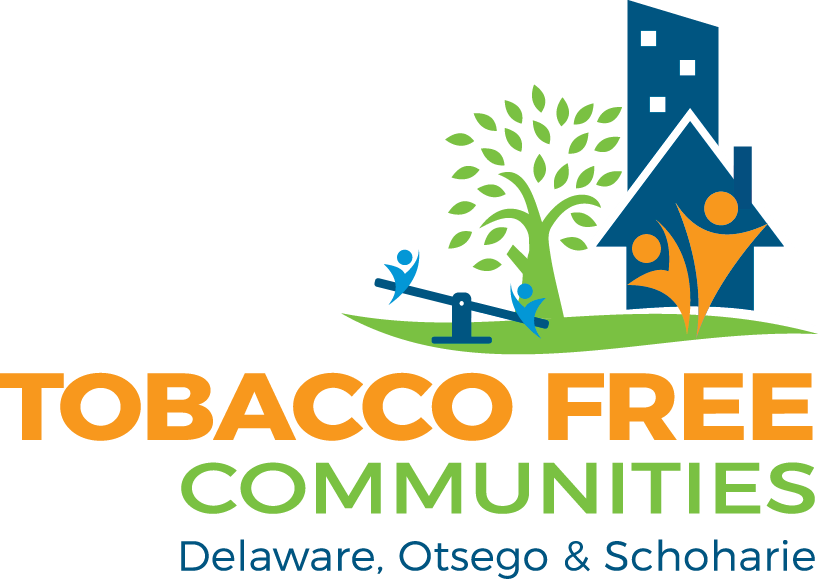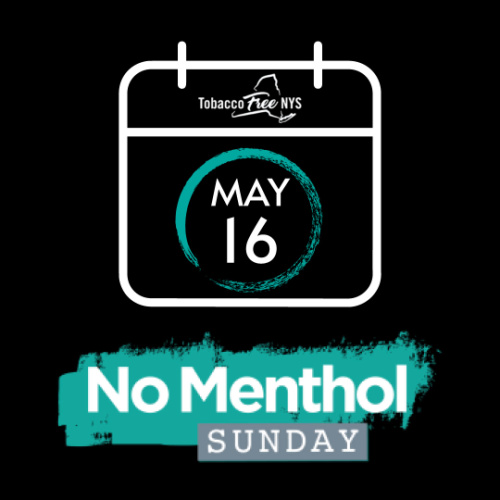May 16th is No Menthol Sunday and in collaboration with our statewide tobacco control partners, we’re launching a new statewide initiative that aims to put a spotlight on how the tobacco industry has aggressively marketed menthol products to African Americans.1,2 The “It’s Not Just” campaign launches regionally and statewide today and is focused on ending the misconception that menthol is just a flavor. It’s not just a flavor but an injustice that is disproportionately killing Black Americans.
Smoking-related illnesses are the No. 1 cause of death in the African American community, surpassing all other causes of death, including AIDS, homicide, diabetes and accidents.3,4,5 Overall, 85% of African American smokers use menthol cigarettes, compared to 29% of white smokers.3,6
The “It’s Not Just” campaign is intended to educate people across New York State about the injustice of menthol-flavored tobacco product marketing and promotion. The campaign uses direct language and powerful, emotional imagery of people who represent communities targeted by Big Tobacco. It describes how menthol is more than a flavor, highlighting hard-hitting facts about the manipulative, aggressive nature of menthol tobacco marketing and its impact on African American communities.
“Menthol products are aggressively marketed in Black communities, where the tobacco industry puts more menthol products on the shelves and makes them cheaper. We know the cooling flavor of menthol tobacco makes them easier to start and harder to quit,” said Jennifer Hill, Community Engagement Coordinator, Tobacco-Free Communities | DOS. “It’s not by accident and it’s not just.”
Individuals can learn more about how to help fight the injustice of menthol-flavored tobacco products at the new campaign’s website: NotJustMenthol.org.
“With the recent FDA announcement to ban menthol-flavored tobacco products, this campaign couldn’t be more timely and relevant,” said LaTroya Hester, director of communications, The Center for Black Health & Equity. “We know that the tobacco industry will fight this decision with the full force of its legal and marketing power, but we’re not intimidated. The Center is excited about the launch of this campaign, and we are so honored to contribute to much-needed counter-messaging.”
While the tobacco industry has traditionally targeted Black communities with the marketing of menthol products, menthol is also a driver of youth initiation.7,8 When New York State ended the sale of flavored e-cigarettes statewide in May 2020, it was a significant step toward reducing youth tobacco use. However, other flavored tobacco products, such as menthol cigarettes, continue to present an obstacle to decreasing tobacco use among young people and underserved populations.
“For years, the tobacco industry has not cared how the habitual products drastically affected users’ health. By producing varieties of special menthol flavors that cater to youth, it has caused countless health issues already impacting our black and brown communities,” said Lee Fisher, President, NAACP Oneonta Area Branch.
To localize the conversation about menthol, Community Engagement Coordinator Jennifer Hill presented the short documentary, Black Lives/Black Lungs, virtually at the May meeting of the Oneonta NAACP to highlight how the tobacco industry has “African Americanized” menthol-flavored cigarettes through its aggressive marketing campaign. NAACP members had a lively discussion afterward.
With over half of teen and young adult smokers smoking menthol cigarettes, Youth Engagement Coordinator, Christopher Bradley will also be showing Black Lives/Black Lungs virtually to area youth followed by a discussion afterward for his event, “Menthol & Social Justice” on Wednesday, May 19th, 6:30-7:30pm. To join the event, go to https://form.jotform.com/211184428697161.
- Center for Disease Control and Prevention. “African Americans and Tobacco Use,”https://www.cdc.gov/tobacco/disparities/african-americans/index.htm. Updated November 16,
- Food and Drug Administration. Preliminary Scientific Evaluation of the Possible Public Health Effects of Menthol Versus Nonmenthol Cigarettes.
- Campaign for Tobacco-Free “Tobacco Use Among African Americans,” 2021. https://www.tobaccofreekids.org/assets/factsheets/0006.pdf.
- American Cancer Society, “Cancer Facts & Figures for African Americans, 2013–2014,” 2013, http://www.cancer.org/acs/groups/content/@epidemiologysurveilance/documents/document/acspc-036921.pdf.
- American Heart Association, “African Americans and Cardiovascular Diseases: Statistical Fact Sheet, 2012 Update,” http://www.heart.org/idc/groups/heartpublic/@wcm/@sop/@smd/documents/downloadable/ucm_319568.pdf
- Delnevo, CD, et al., “Banning Menthol Cigarettes: A Social Justice Issue Long Overdue,” Nicotine & Tobacco Research, 22(10): 1673-1675,
- Tobacco Products Scientific Advisory Committee’s Report and Recommendations on the Impact of the Use of Menthol in Cigarettes on the Public Health.




